Operational update on Syria: Maintaining vital support to the most vulnerable in times of COVID-19, while bracing for increased needs
… have been affected either by the loss of jobs or huge reductions in their sources of …
… have been affected either by the loss of jobs or huge reductions in their sources of …
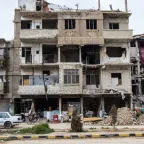
It has been six years since the crisis in Syria began. Over 400,000 people have been killed, another 1.5 million injured and nearly 8 million people internally displaced. Four out of five Syrians now …
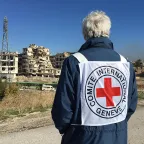
As a humanitarian organization, our job at the International Committee for the Red Cross (ICRC) is to help people affected by conflict, regardless of who they are. We carry out this work in some of …
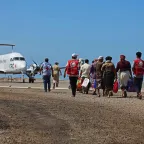
In the third year since the escalation of the armed conflict, communities in Eastern Ukraine prepare for the coming winter. “We returned here in the autumn of 2023. We came back because home is …
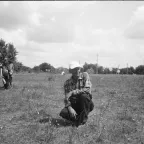
… effect? "With the COVID-19 lockdown and many jobs getting affected, our own produce along …

… States to allow humanitarians to do their jobs as a default precautionary measure unless …

This World Humanitarian Day, we celebrate women who provide life-saving aid to people affected by armed conflict. Women play an important role in humanitarian response, from physical rehabilitation …
Ambulance drivers and first aiders are often a patient's first contact to health-care services. To guarantee the provision of quality care to the sick and wounded, even in challenging conditions, …
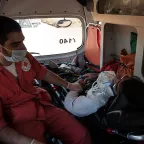
Lina with her three children in their makeshift home. Ras Baalbek, Lebanon, July 2015. “For three years I had no answer for my children when they asked me 'What are we were going to eat today?'. I …
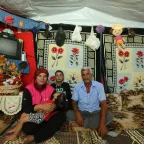
The humanitarian needs in Afar are huge. Many people living with disabilities do not have access to medical services. Getachew Gesese sits on a cemented edge of a flower bed, under a flagpole in …
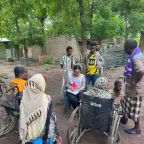
Try one of the following resources:
Created in 1863, the ICRC library, alongside the ICRC archives, provides an indispensable documentary reference on the organization itself and international humanitarian law.
International humanitarian law is based on a number of treaties, in particular the Geneva Conventions of 1949 and their Additional Protocols, and a series of other instruments.
Customary international humanitarian law consists of rules that come from "a general practice accepted as law" and that exist independent of treaty law.